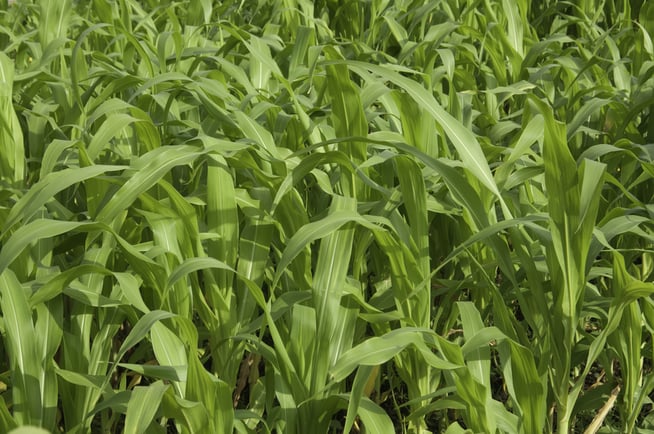
Glyphosate, the most widely used herbicide globally according to the EPA, is a key tool in agriculture, with millions of pounds sprayed on food and animal crops annually. However, its impact on human health, particularly the gastrointestinal (GI) system, is a growing concern.
But what exactly is Glyphosate? It is the active ingredient in many herbicides, including Roundup, designed to kill unwanted plants and weeds. Glyphosate works by inhibiting an enzyme crucial for plant growth, ultimately leading to their demise.
Numerous studies and articles on GMOevidence.com highlight Glyphosate's link to various health conditions and diseases. Additionally, an article published by Moms Across America reveals glyphosate levels in the top 20 fast-food restaurants and its impact on children, with 100% of the top 20 fast-food brands testing positive for glyphosate herbicide, and 76% positive for harmful pesticides.
Hippocrates, often referred to as the Father of Medicine, famously stated, "All disease begins in the gut." This blog will delve into Glyphosate's effects on the GI system, aligning with naturopathic principles that emphasize the importance of gut health in overall well-being.
Negative Effects of Glyphosate on the GI System
Disruption of Gut Microbiota: Research suggests that glyphosate exposure may disrupt the balance of gut microbiota, specifically good (commensal) bacteria and the trillions of microorganisms residing in the digestive tract. These microorganisms play a crucial role in maintaining gut health, aiding digestion, synthesizing vitamins, and supporting the immune system. Disruption of this delicate balance has been linked to various GI disorders, including inflammatory bowel disease (IBD) and irritable bowel syndrome (IBS). In addition, when disrupting the good bacteria, the bad bacteria or other pathogenic microorganisms can contribute to the development of neurological issues.
Increased Intestinal Permeability: Glyphosate has been implicated in increasing intestinal permeability, commonly referred to as "leaky gut." This condition occurs when the lining of the intestines becomes more porous, allowing harmful substances such as bacteria, toxins, and undigested food particles to leak into the bloodstream. The influx of these substances can trigger inflammation and immune responses, contributing to GI symptoms and potentially leading to systemic health issues.
Association with GI Disorders: Several studies have suggested a correlation between glyphosate exposure and the incidence of GI disorders. For instance, research has linked glyphosate exposure to an increased risk of developing conditions such as celiac disease, a serious autoimmune disorder triggered by gluten consumption in genetically susceptible individuals. Additionally, studies have indicated a potential association between glyphosate and the exacerbation of symptoms in individuals with pre-existing GI conditions.
Disruption of Enzyme Pathways: Glyphosate has been shown to interfere with enzymatic pathways involved in amino acid synthesis and metabolism. Some researchers hypothesize that glyphosate's disruption of these pathways may impact protein digestion and absorption in the GI tract, potentially contributing to GI symptoms such as bloating, gas, and discomfort.
How do we defend ourselves from Glyphosate Exposure?
There are several things we can do to minimize or eliminate Glyphosate contamination. Here are several helpful tips!
- Watch What You Eat: The food we eat is very important. Even organic foods are not always spared, since pesticides like glyphosate (and others) can find their way into organic farms via wind drift or other means. Organic produce may still contain some pesticide or toxin residues, however, levels will be far lower than conventionally grown items.
- You can visit the Environmental Working Group’s website to look at the yearly list of the Dirty Dozen in which the list indicates which crops tend to be treated with the highest volume and variety of pesticides. This is the list of produce that is best to eat organically grown. The best suggestion is to eat locally grown and get to know your local farmers.
- Water is Your Friend: Drink plenty of clean, filtered water to flush out toxins.
- Consider Your Vitamins: Take supplements that can bind to Glyphosate and help remove it, such as citrus pectin, glycine, humic or fulvic acid (BioToxin Binder; sold at ReSet), and chlorella.
- Take Probiotics and Prebiotics: They are needed to restore beneficial gut bacteria killed off by Glyphosate.
- Foot Cleanse: Use our IonCleanse foot bath to help the body eliminate Glyphosate. A study performed on 19 people revealed the therapy group demonstrated a 48 percent decrease in mean glyphosate levels after using detox foot bath over a course of 30 days; 3 times a week.
- It's Time to Sweat: Sweat out toxins by using our infrared sauna or Hocatt for at least 20 minutes every week.
Take Charge of Your Health: Detoxify from Glyphosate and Agricultural Toxins
Pesticides and environmental toxins represent a daily problem that requires daily solutions. At ReSet Loung, our Naturopath, Jennifer Cabic, can help create a program specifically to your needs to help safely remove glyphosate and other agricultural toxins and prevent them from being stored in the body. This not only includes GI health but the body as a whole with safe, natural detoxifiers that provide additional protective benefits for long-term health and wellness. Contact our Chagrin Falls spa today to start your journey towards a toxin-free body and a healthier future.



